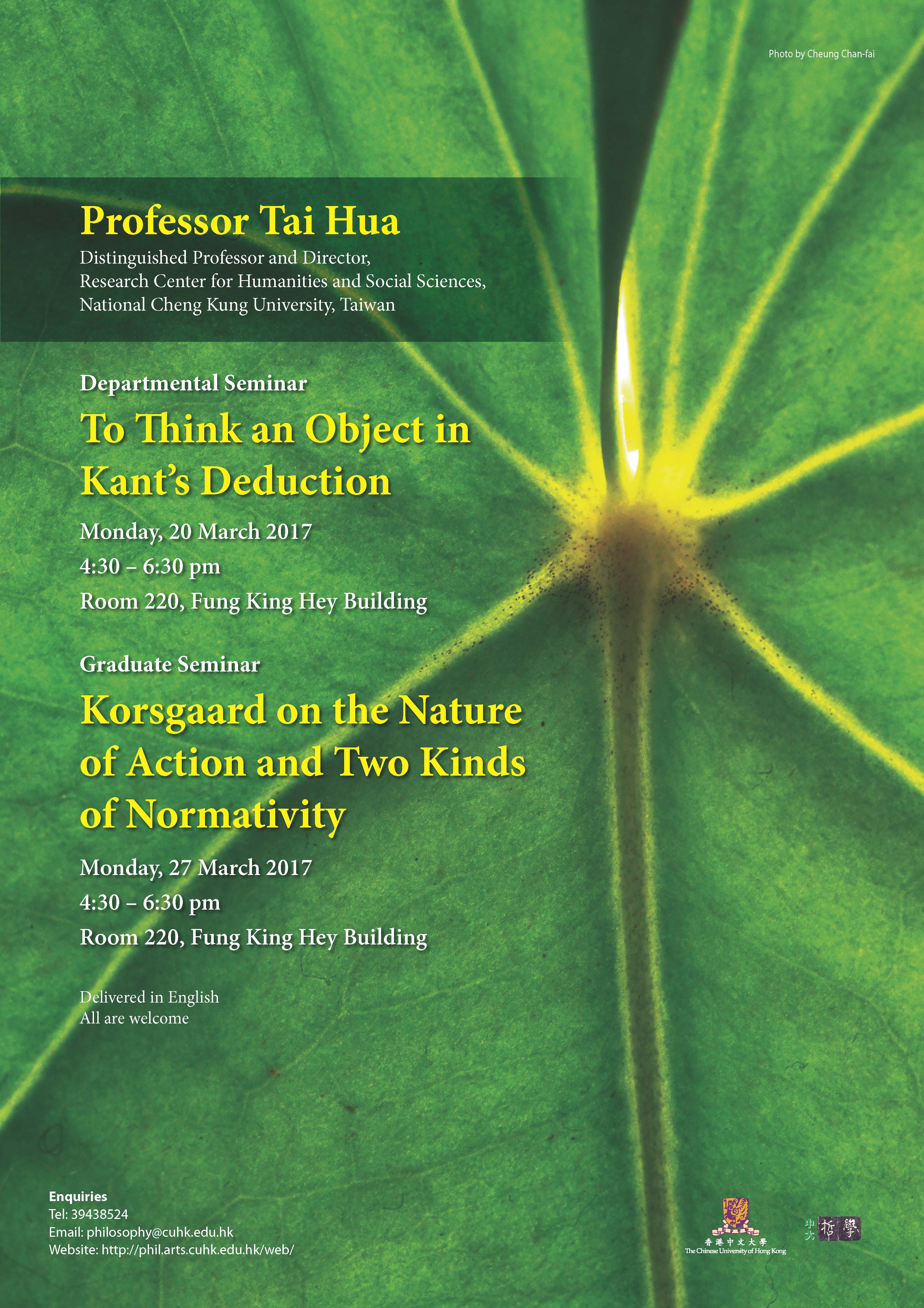Korsgaard on the Nature of Action and Two Kinds of Normativity (Graduate Seminar)

Prof. Tai Hua, Distinguished Professor and Ex-Director, Research Center for Humanities and Social Sciences, National Cheng Kung University, Taiwan |
|
4:30 – 6:30 pm |
|
Room 220, Fung King Hey Building |
Abstract:
In her recent book Self-Constitution: Agency, Identity, and Integrity (Oxford UP, 2009), Korsgaard puts forward a more thought-out theory of normativity than she did in an earlier book The Sources of Normativity (Cambridge UP, 1996). In the later work, she holds (1) “the necessity [or normativity] of conforming to the principles of practical reason” to stem from (2) “the necessity of being a unified agent,” which she holds to stem in turn from (3) “the necessity of being an agent,” and this ultimately from (4) “the necessity of acting.” Thus, in the final analysis, for Korsgaard the normative force to be ascribed to our practical principles or, more generally, reasons for action is grounded on (4). It is therefore crucial that, in espousing her theory, Korsgaard must explain how (4) is to be understood.
Korsgaard turns out to offer a twofold account of (4) that involves action in the case of humans and action in the case of non-human (higher) animals. In her view, non-human animals can be thought of as in some sense “authors” of the movements they make to get what they desire. Traditional philosophers, both in the East and in the West, typically viewed the desires of non-human animals as brute forces that impel them blindly to do what they did. Korsgaard disagrees. She tries to argue that there is still some sense in which whether or not non-human animals make their movements to get what they desire are up to them. However, this is not to say that for her these animals are “authors” of their movements in the same sense in which we are “authors” of ours. Human agency undeniably differs from the kind of agency that Korsgaard seeks to attribute to non-human animals. From these two kinds of agency arise two kinds of normativity. The kind of normativity that applies to non-human animals is called by Korsgaard “primitive normativity.”
I will try to spell out the (largely Kantian) conceptual framework with which Korsgaard presents such a complex theory of normativity. And, as an exercise in comparative philosophy, I will show how that framework may be used to make better sense of, and perhaps also to defend, Xunzi’s claim that “human nature is bad.” Attached to this abstract are two files, one of which sketches Korsgaard’s theory while the other is an unpublished work of mine on Xunzi (which was once presented at the CUHK Conference on Moral and Political Philosophy, 2006, and a revised version of which was later published in Chinese under the title 荀子論性惡, in «哲學分析與視域交融», 林從一主編, 台大出版中心, 2010: 161-82). My work on Xunzi has not taken into account Korsgaard’s distinction between rational (human) agency and non-rational agency; if it did, it might have been more forcefully written.




